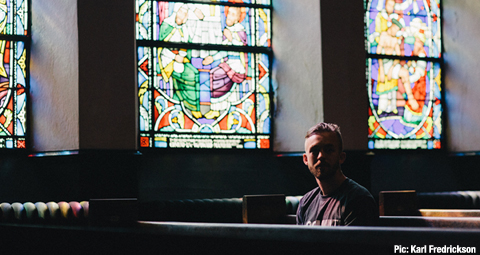BY Peter Diamond | June 1 2018 | ![]() 0 COMMENTS
0 COMMENTS ![]() print
print

Parishes and Catholic groups can provide solutions to loneliness, Church tells government
Publication Date: 2018-06-01
Submission to consultation on growing problem highlights the value of Faith
The government should draw on the knowledge and resources of Catholic parishes and charities in Scotland to help alleviate loneliness and social isolation in communities, according to the parliamentary officer for the Church.
Anthony Horan has put forward the Catholic Church’s opinion on how the Scottish Government should tackle and address the issue of loneliness and social isolation, stating that Christianity has been establishing and nurturing strong and positive social connections for thousands of years.
The Scottish Government consultation—titled ‘A Connected Scotland: Tackling social isolation and loneliness and building stronger social connections’—will hope to address an issue which has been on the rise and will continue to rise with an aging population.
Faith groups
Mr Horan, director of the Catholic Parliamentary Office, said in his response: “Government and local authorities should be engaging with local communities and faith groups and asking them what support would help them in the work they do to try alleviating loneliness, poverty and social isolation.
“The knowledge and experience of Christian churches is a key component of the solution to tackling this issue.”
Within his response Mr Horan cited research which has shown that Catholics who attend Mass more than once per week are much less likely to feel suicidal, which can be a tragic outcome of experiencing social isolation and loneliness.
The research by Tyler Vander Weele, of Harvard’s TH Chan School of Public Health, studied 89,000 participants over a period of 14 years.
The study revealed that people who attended any religious service once a week or more were five times less likely to commit suicide.
In Scotland, the number of marriages has been declining for decades whilst the numbers of divorces increase, coinciding with a drop in fertility rates, the submission said, adding that the breakdown in relationships and the family–‘the bedrock of society’—has contributed to social isolation and loneliness.
Family breakdown
“We need to consider the correlation between contraception/abortion/less marriages/more divorces and the subsequent breakdown of the family and its impact on social isolation and loneliness,” it said. “It is patently clear that the good of persons and the proper functioning society are closely connected with the healthy state of conjugal and family life.”
“The Scottish Government should acknowledge the role of faith groups,” the response added. “The Church has the knowledge and experience as well as the infrastructure to reach out to people.
“Each Catholic parish is, in effect, a hub for the community; providing not only a place of spiritual communion, but also a place of fraternal communion for the entire community.
“The Church teaches that our calling is filling the human community with works of spiritual and corporal mercy such as feeding the hungry and comforting the sick.”
St Mungo’s Old Folks Centre for Wellbeing in Glasgow’s East End was opened 55 years ago by Fr John Mary, a Passionist priest. The hub serves Dennistoun, Springburn, Drygate, Calton and Cowcaddens.
Annmarie Gallagher has been a volunteer with St Mungo’s for 34 years and believes the facility is a real lifeline in combatting social isolation and loneliness.
“We are open five days a week, with lunch provided everyday and free transport for those who want it,” Ms Gallagher said. “Some of the facility users come here to meet friends once or twice a week but others are here everyday, and frankly some would be lost without it.”
Spotting dips in the older people’s mood is a vital part of the volunteer’s role.
“You can see a change in them from day to day and when you spot that you do things to bring them back up,” Ms Gallagher said. “There are many examples of people, quite often men, who come here and to begin with they can be very shy. However, over time you begin to see a real positive change in them, they come out their shell and are very chatty. St Mungo’s gives them a purpose.”
Ms Gallagher said the government could learn from daycentre’s like St Mungo’s. “Absolutely, we would love the government to shout more about what we do because a lot of the time it can go unnoticed.
“Recently myself and a few other volunteers have been canvassing the area to let older people know that this place is here for them and it won’t cost them much.
“Transport can be seen as a barrier but we’ve got two 15 seated minibuses that we use and it’s a free service.”
– To find out more about St Mungo’s Daycentre, contact 0141 552 8999.










